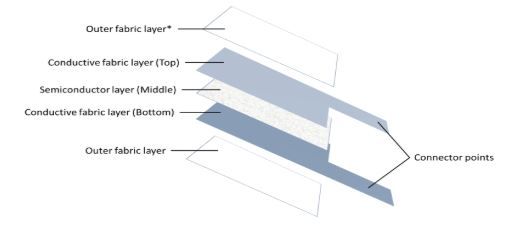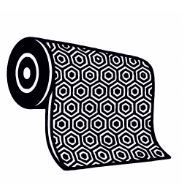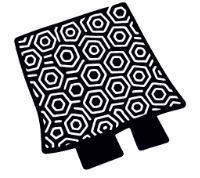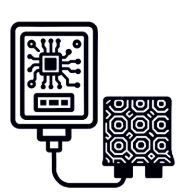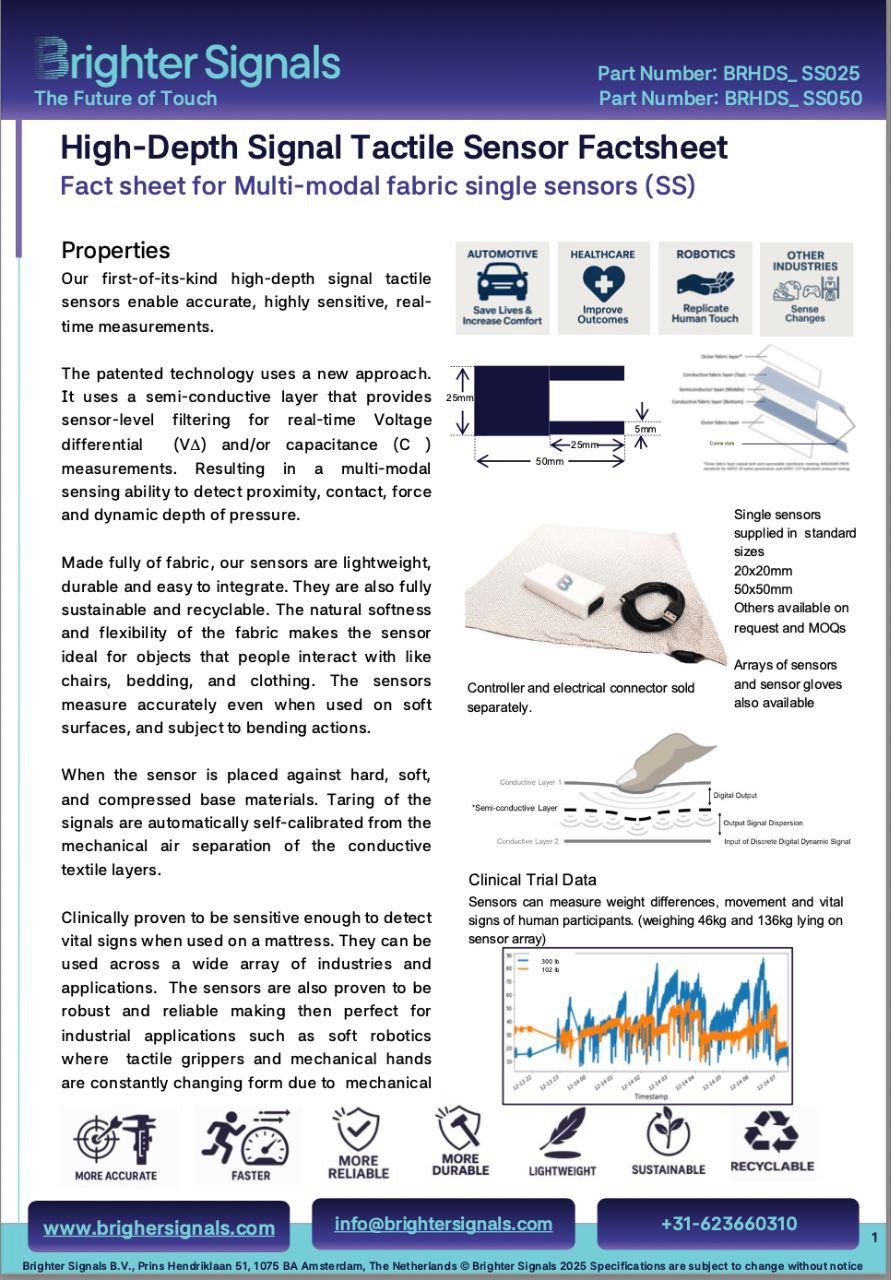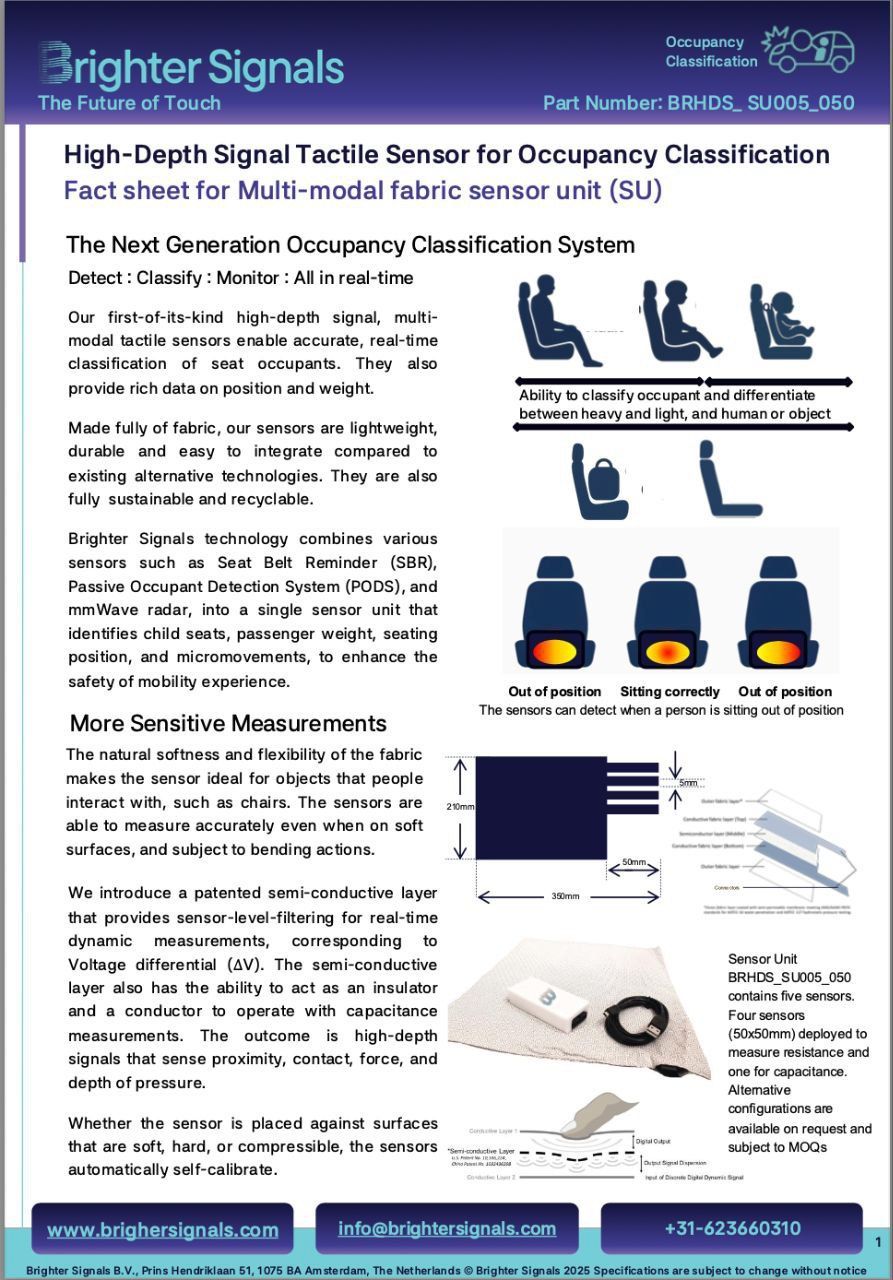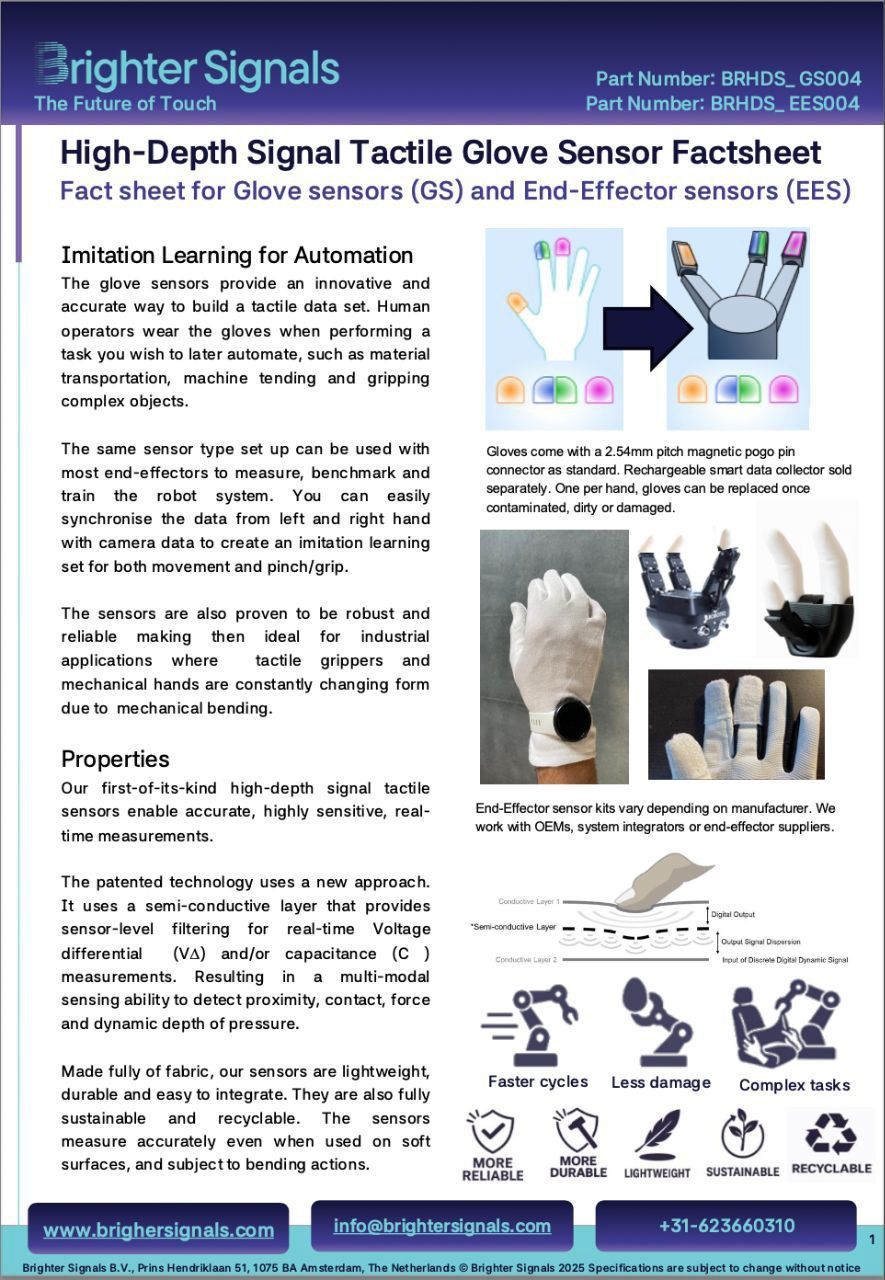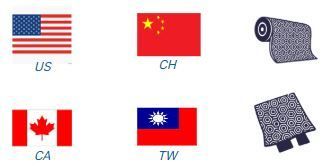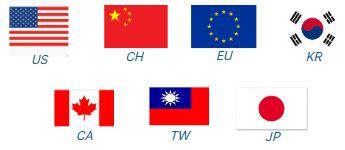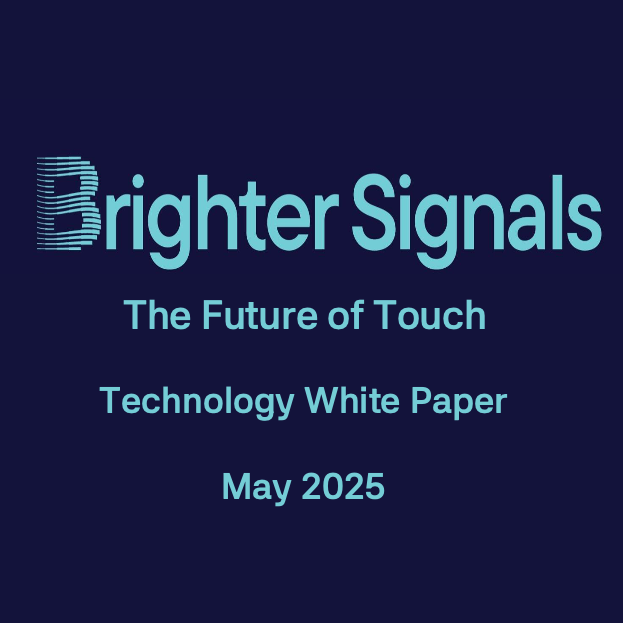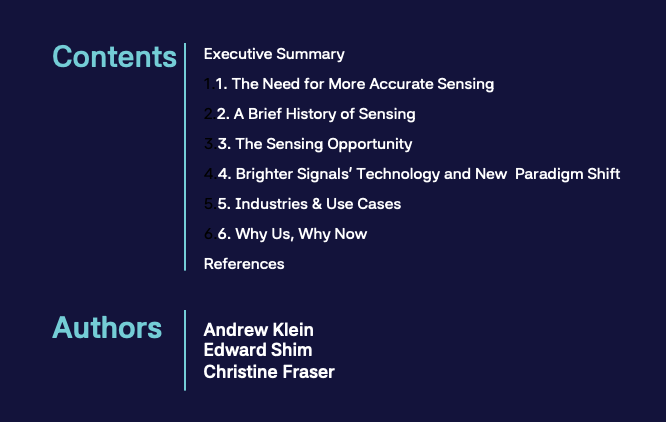The problem we solve
Metaphorically speaking you could compare historic methods of sensing to be similar to a television only having the ability to produce black and white images when the world is now used to High Definition.
There are two core measurements that existing resistance sensors cannot do within a single sensor.
- Sensitivity of touch - e.g., how hard is something pushing or pulling
- Density of touch - e.g., knowing what movements mean, understanding the strain or depression in a seat or bed.
For conventional pressure sensors it is very hard to measure movement, strain and therefore density. They try and solve this by using multiple sensors together, but this only creates noise and lag while increasing complexity and cost.
Occupancy detection, classification and monitoring have not been possible in a single sensor technology until now.

Our technology represents a massive improvement
Brighter Signals is pioneering a new class of touch and tactile sensing with a patented technology that understands density. Side by side comparison of the existing method versus us is staggering.
Measuring surface area density today might require 460 sensors in 1 inch, with our advanced technology only a single sensor is required. “
Edward Shin, CTO & Co-Founder
We turn fabrics into highly sensitive sensors
An ingenious idea - to place a semi-conductive layer of fabric between two conductive layers - is at the core of our solution.
The innovation is both simple and profound.
By slowing down the energy transfer between the conductive layers, the semiconductive layer enables highly sensitive measurements of degrees of touch.
Product Fact Sheets
Please Click On The Fact Sheet to Download
We have foundational intellectual property
We own patents and related know-how developed by our co-founder over years with more than $2 million of grants from governments and corporate R&D departments.
Primary Patent (Granted)
Broadly protects fabric composition and sensor construction/design
Filed 2016; Granted 2022
Secondary Patent (Granted)
Extends protection to further related inventions and territories
US Filed 2024; Granted 2025
Quality of Protection
According to our patent counsel
(leading Canadian IP firm)

